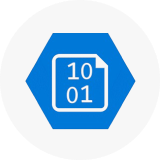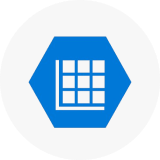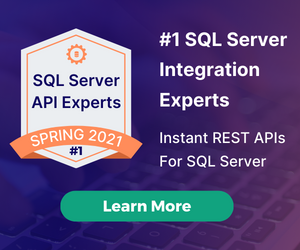CData Alternatives for 2025
by Spencer Nguyen • January 13, 2025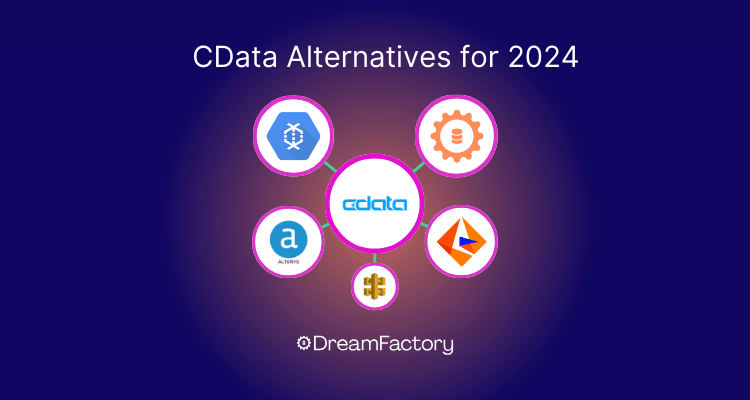
Many businesses are on the lookout for robust alternatives to popular tools like CDATA. Whether it's due to cost, specific functionality, or compatibility requirements, finding the right tool can significantly impact your data management strategies.
Here’s what you need to consider when looking for a CDATA alternative:
- Comprehensive connectivity options across various data sources and platforms.
- Scalability to handle data growth and complexity without sacrificing performance.
- User-friendly interface and documentation to ensure ease of use for all team members.
- Strong customer support and community resources to help troubleshoot any issues.
- Competitive pricing without compromising on key features and capabilities.
What Is CData?
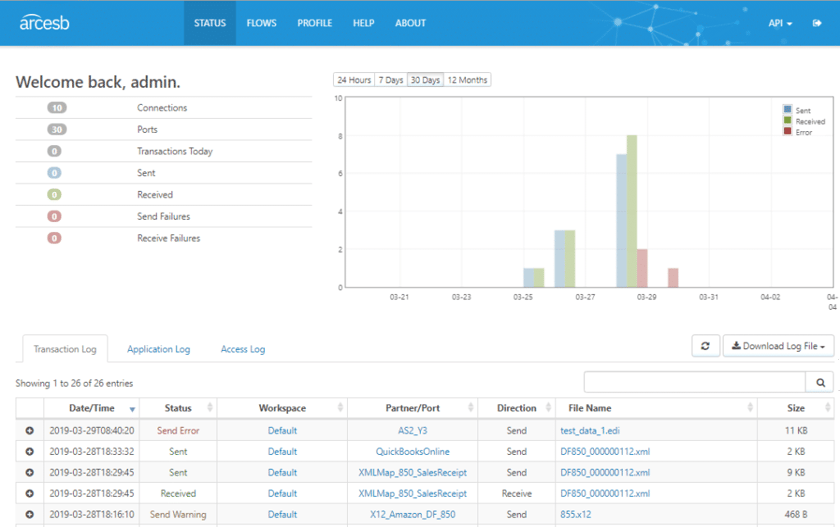
CData provides universal data connectivity solutions that enable applications to access and integrate data from any source, whether on-premises or in the cloud. Their product line includes ODBC and JDBC drivers, data providers, and software connectors that simplify data access across disparate sources. CData's tools are used by developers, data engineers, and analysts to build data-driven applications and analytics pipelines.
Key Features of CData
- Library of over 200 data source connectors
- Support for standard interfaces like ODBC, JDBC, ADO.NET
- Data transformation and modeling capabilities
- Connectivity monitoring and administration tools
- Cloud and on-premise deployment options
Pros & Cons of Using CData
Pros:
- Wide range of data source connectivity options
- Tools for simplifying data access and integration
- Robust security and compliance certification
- Good performance for most use cases
Cons:
- Can be more expensive than some alternatives
- Does not recognize schema changes
- Potential performance limitations with very large data sets
- Limited customization options for some connectors
- Relatively complex setup for some data sources
- Generally poor customer support
7 Top CData Alternatives
In the next section, we’ll be covering some of the top CData alternatives, based on support, connector options, as well as price.
1. Dreamfactory

Rating: 4.4/5 on G2
Key Features:
- Automated API generation for backend data sources
- Support for SQL, NoSQL, file storage, and external APIs
- Robust security, authentication, and governance features
- Scalable microservices architecture
DreamFactory is the easiest way to automatically generate, publish, manage, and secure REST APIs, convert SOAP To REST, and aggregate disparate data sources through a single API platform.
DreamFactory also generates a comprehensive REST API for SQL, NoSQL, file storage, email, and push notifications. You can securely call any web services, including custom-built REST APIs and SOAP services. DreamFactory generates and publishes your new REST API in seconds and with live API docs.
DreamFactory also provides server-side scripting with the Node.js, PHP, and Python. DreamFactory makes it easy to write server-side scripts and attach your scripts to any API request and response event.
Whether you are looking to expose tables, views, or stored procedures, DreamFactory has you covered. Due to the autogeneration capabilities, when a new field is added or any changes occur at the database level, they are automatically reflected at the API level too! There is no requirement to manually refactor your APIs and can continue to deliver a seamless RESTful API experience.
A key advantage of DreamFactory over CData is the personalized support provided by their team of API experts. DreamFactory offers comprehensive documentation, training, and one-on-one guidance to ensure customers can optimize their API deployments across web, mobile, and serverless use cases. This white-glove approach provides a level of hand holding that CData's driver-centric model cannot match.
For teams looking to build APIs that unite data across databases, SaaS apps, IoT streams, and more, DreamFactory is an excellent CData alternative backed by a support team motivated to drive customer success.
2. Amazon API Gateway

Rating: 4.2/5 (G2)
Key Features:
- Fully managed service for creating, publishing, and securing APIs
- Serverless architecture that scales automatically
- Support for WebSocket APIs and REST APIs
- Caching, throttling, monitoring, and analytics capabilities
Amazon API Gateway is a fully managed service that makes it easy to create, publish, maintain, monitor, and secure APIs at any scale. While CData focuses on data connectivity drivers, API Gateway provides a serverless solution for building and running APIs that act as the "front door" for data from any source.
A key advantage of API Gateway over CData is its seamless integration with other AWS services like Lambda, DynamoDB, CloudWatch, and IAM. This allows APIs to be quickly composed from diverse data sources while inheriting AWS's scalability, availability, and robust permissions model. Developers can use AWS tools they're already familiar with.
For cloud-native architectures and modern event-driven applications, Amazon API Gateway represents a more future-proof and scalable alternative to CData's traditional driver-based approach. Its pay-as-you-go pricing and centralized API management capabilities also make it cost-efficient for production workloads.
3. AWS AppSync

Rating: 4.3/5 on G2
AWS AppSync, a serverless GraphQL service, stands out in facilitating the development of mobile and web applications. Its strength lies in enabling the creation and management of real-time data subscriptions, coupled with the capability to maintain app data access even when mobile devices go offline.
Some of AWS AppSync’s key features:
- AppSync enables the creation of customizable GraphQL APIs, offering versatile and efficient data management.
- Offers seamless integration with AWS services like DynamoDB, Aurora, Elasticsearch, and Lambda, enhancing data storage and processing.
- Features offline data sync, ensuring app functionality and data consistency without internet connectivity.
- Supports real-time data access and updates, essential for apps needing instant data interaction.
- Provides comprehensive querying, search, and filtering options, ideal for efficiently managing large datasets.
AppSync’s integration with GraphQL and various AWS services can however present a steep learning curve, especially for developers unfamiliar with GraphQL or AWS ecosystem.
4. Informatica

Rating: 4.4/5 on G2
Key Features:
- Unified platform for data integration, app integration, data quality, governance
- AI-powered intelligence and automation capabilities
- Hybrid/multi-cloud deployment options
- Broad connectivity to databases, applications, big data sources
Informatica's Intelligent Data Management Cloud provides an end-to-end solution for integrating, managing, and governing data across cloud and on-premises systems. While CData focuses specifically on data connectivity drivers, Informatica takes a more holistic approach.
A key advantage of Informatica over CData is its use of metadata-driven AI and automation to accelerate integration processes. Its CLAIRE engine analyzes technical and business metadata to recommend optimal integration rules, mappings, and transformations with little manual effort required.
Informatica is also highly scalable and optimized for processing large data volumes across data warehouses, data lakes, and streaming pipelines. Its universal connectivity and processing power make it better suited than CData for complex, mission-critical data integration scenarios.
5. Oracle Cloud Infrastructure
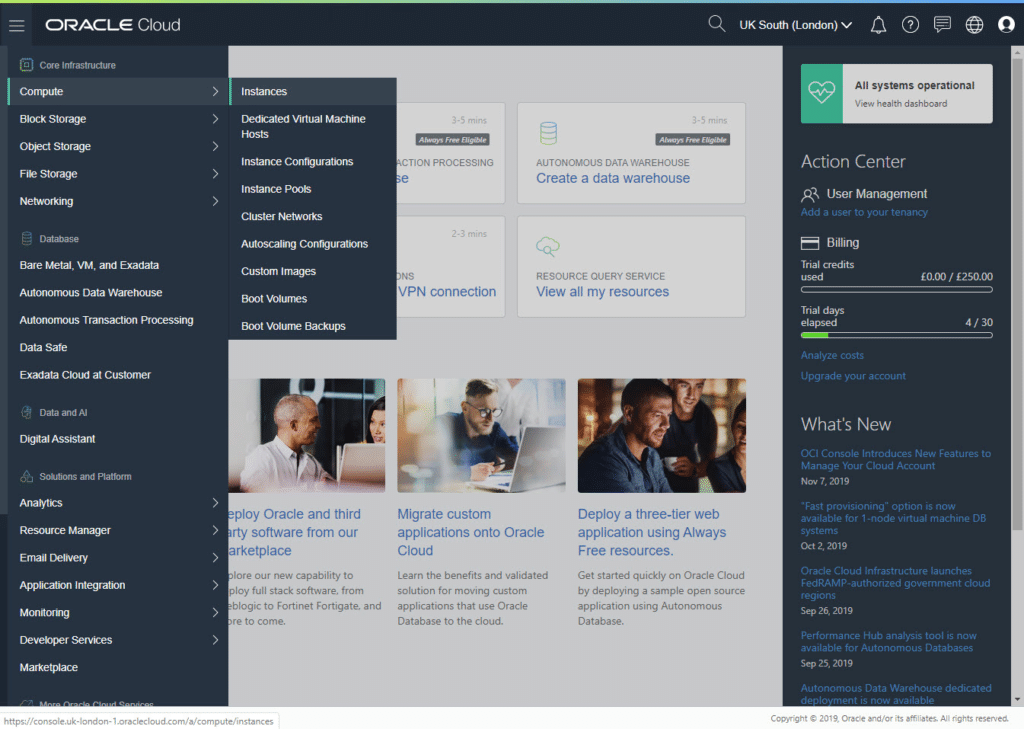
Rating: 4.2/5 on G2
Key Features:
- Visual data integration and ETL tooling
- Automated connectivity to Oracle and third-party data sources
- Ability to execute pipelines on Oracle Cloud or on-premises
- Tight integration with Oracle Analytics Cloud and Data Science
While CData focuses on providing connectivity drivers, Oracle Cloud Infrastructure Data Integration offers a comprehensive platform for building, executing, and monitoring data pipelines across hybrid environments.
A key advantage of OCI Data Integration over CData is its seamless integration with Oracle's full data and analytics suite. Data pipelines can easily surface data into Oracle Analytics Cloud for self-service visualization and machine learning models built in Oracle Data Science can consume integrated data sources.
6. Alteryx
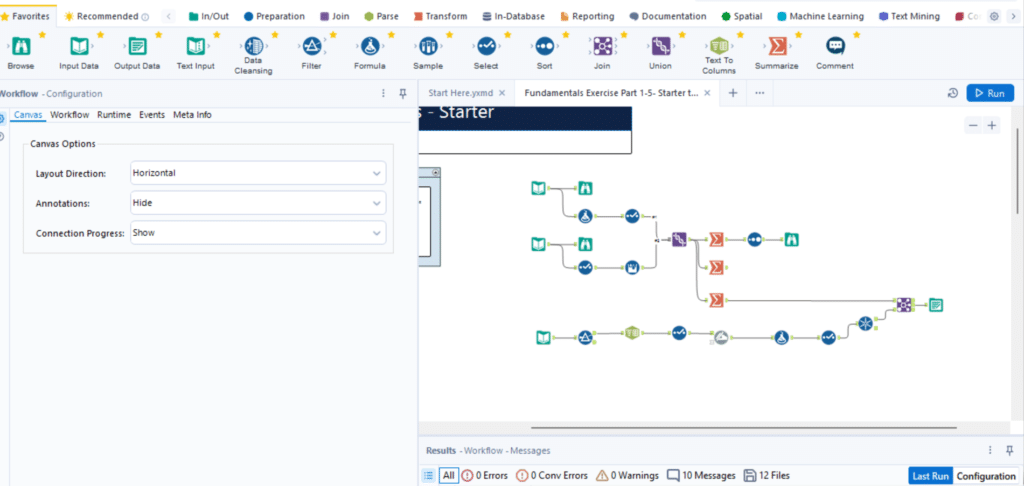
Rating: 4.6/ 5 on G2
Key Features:
- Code-free data prep, blending, and analytics
- Automated analytics with drag-and-drop tools
- Connectivity to data warehouses, databases, files, apps
- Scalable processing for large data volumes
Alteryx provides an end-to-end analytics automation platform that enables data workers to prep, blend, and analyze data with minimal coding. While CData focuses specifically on data connectivity drivers, Alteryx takes an integrated approach.
A key advantage of Alteryx over CData is its user-friendly, code-free interface. Data analysts can use drag-and-drop tools to access, integrate, and perform analytics across multiple data sources without writing scripts or queries. This accelerates time-to-insight.
Alteryx also includes advanced in-database processing abilities that allow processing to be pushed down to the data source for better performance on large datasets. Its automated analytics and machine learning capabilities further extend its abilities.
7. Google Dataflow

Rating: 4.2/5 on G2
Key Features:
- Fully managed service for batch and stream data processing pipelines
- Unified programming model for ETL, analytics, and machine learning
- Autoscaling architecture that can process terabytes of data
- Native integration with other Google Cloud services
Google Dataflow is a serverless data processing service that simplifies the deployment and execution of batch and streaming data pipelines. In contrast to CData's driver-centric approach, Dataflow provides a managed platform.
A key advantage of Dataflow over CData is its seamless integration with Google Cloud's data analytics ecosystem. Dataflow can ingest data from sources like BigQuery, Cloud Storage, Pub/Sub, and Dataproc, then apply transformations using Cloud Dataprep before feeding results into services like AI Platform.
How to Pick the Best CData Alternative: What Is CData?
CData offers robust tools like ODBC and JDBC drivers, enabling access to data across diverse on-premise and cloud sources. While it’s widely used for integrating and managing data, CData isn’t always the best fit for every project. Its costs, complexity, and limitations on customization can prompt teams to explore alternatives.
What to Look for in a CData Alternative
When choosing an alternative, start with your connectivity needs. If you require access to diverse sources like databases, SaaS apps, or file storage, prioritize solutions with broad connector support. Ease of use is also critical; platforms like DreamFactory simplify setup with automated API generation, reducing manual effort.
Customization is another key factor. DreamFactory excels here with server-side scripting options, unlike CData’s rigid structure. If performance and scalability are a concern, especially for large datasets or real-time applications, modern, serverless options like AWS AppSync or Google Dataflow may offer better results.
Cost and support quality should also guide your choice. CData’s high price and limited support can be a disadvantage. Alternatives like DreamFactory not only provide competitive pricing but also prioritize customer success with hands-on support and rich documentation.
Why DreamFactory Stands Out
DreamFactory combines ease of use, flexibility, and cost-efficiency. Its automatic API generation supports SQL, NoSQL, and custom APIs, ensuring seamless integration with minimal effort. Unlike CData, schema changes are automatically reflected, and server-side scripting enables deep customization. With strong security features and exceptional support, DreamFactory is an excellent alternative for teams aiming to streamline data integration without breaking the bank.
Choosing a CData alternative means finding the right balance of features, usability, and cost. Platforms like DreamFactory deliver the flexibility and performance many organizations need, often at a fraction of the complexity and price.
Getting Started with DreamFactory
DreamFactory's API automation platform allows you to generate secure APIs connecting to any data source with just a few clicks - abstracting away complex connectivity. Backed by personalized service from API experts, DreamFactory offers robust security, governance, and flexible deployment options that CData and other alternatives cannot match.
See why leading brands trust DreamFactory for API automation. Start your free 14-day trial or book a personalized demo today.
Related Reading:
https://blog.dreamfactory.com/hasura-alternatives/
This article was originally published in 2024, but has been updated with relevant information for 2025.
Frequently Asked Questions
What are some good alternatives to CData for data connectivity?
Top alternatives to CData include DreamFactory, Amazon API Gateway, Informatica, Oracle Cloud Infrastructure Data Integration, Alteryx, and Google Dataflow.
Besides CData, what other solutions enable connecting to multiple data sources?
Solutions like DreamFactory, API gateway services, data integration platforms, and analytics tools offer alternative ways to integrate and access data across databases, APIs, files, and SaaS applications.
For companies moving away from CData, what are viable replacement options?
Depending on the use case, viable CData replacements could include database driver/connector tools, API management platforms, ETL/ELT solutions, or end-to-end data fabrics from vendors like Informatica or Talend.
What are the benefits of using an alternative to CData?
Potential benefits include better performance, more deployment flexibility, tighter integration with analytics/AI tools, intuitive low-code environments, and robust security/governance capabilities.
How do API-based alternatives like DreamFactory differ from CData?
While CData provides connectors, DreamFactory automatically generates APIs that can virtualize data access across sources. This API-first approach abstracts connectivity details.
For cloud data pipelines, how does something like Google Dataflow compare to CData?
Dataflow is a serverless managed service that provides an integrated platform for building streaming and batch data pipelines in the cloud, unlike CData's self-hosted driver model.
As a seasoned content moderator with a keen eye for detail and a passion for upholding the highest standards of quality and integrity in all of their work, Spencer Nguyen brings a professional yet empathetic approach to every task.




















